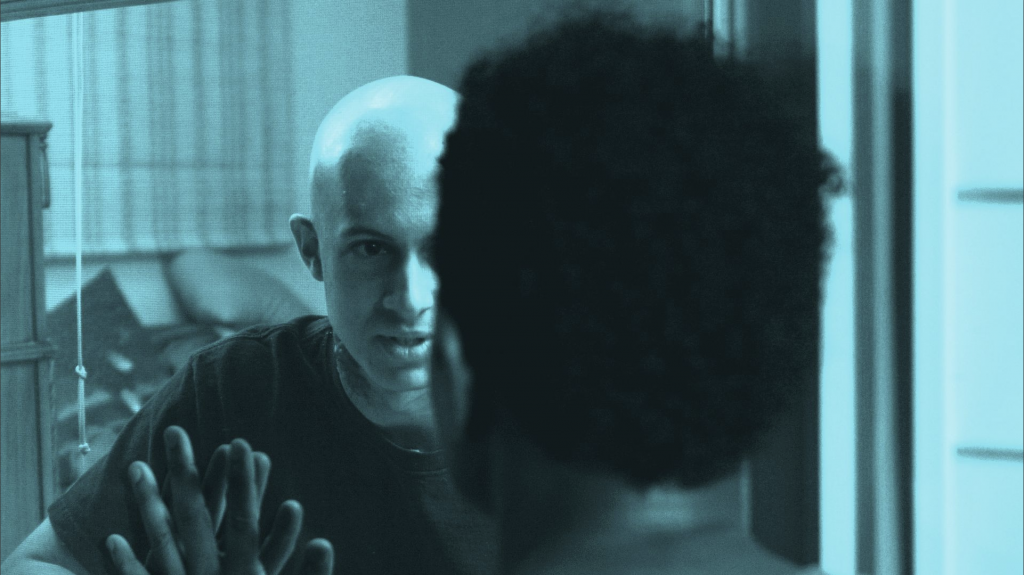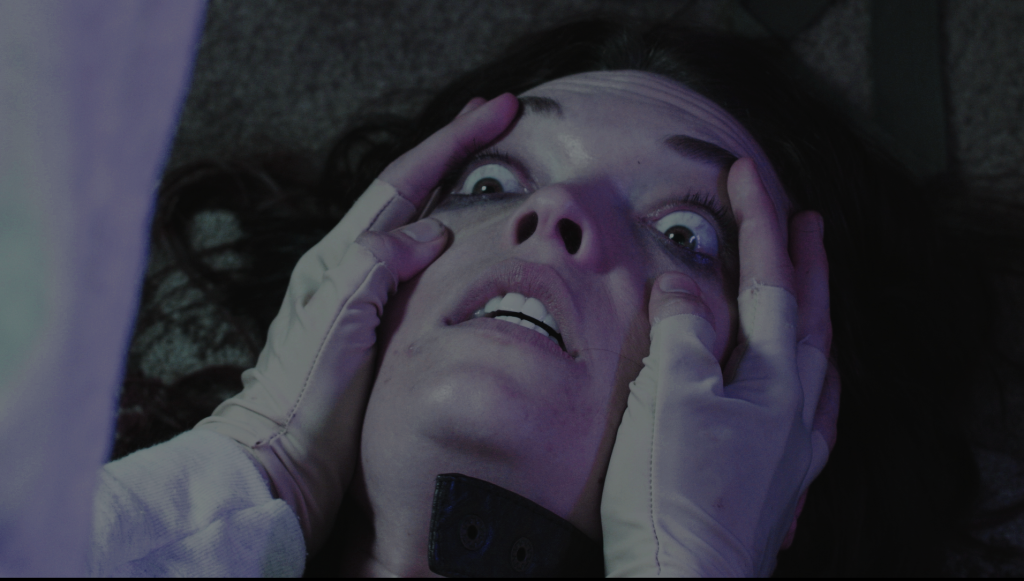WRETCH tells the story of a young man with psychic gifts who is lured into the occult practice of “Enceladism” in an effort to cure his partner’s cancer. His journey takes many uncanny twists as Nat tries to navigate an increasingly toxic environment while battling his nagging demons and attempting to “awaken to his higher purpose.”
First off tell me a bit about yourself and how you got into film making?
I grew up loving music and movies and my dream was to be a musician and actor. A nightmarish experience with a high school drama teacher altered the acting course but I continued playing in bands and went on several tours with a number of bands, recording and releasing albums. After I moved to NYC in 2007 I found my way back into acting and writing for the stage. When I moved back home to Kansas City in 2013, disillusioned with the business of acting in NYC and the cost of living, I continued acting locally and saw there was a whole community of people who were into making films. So I decided to try and adapt part of a full-length stage play I had been developing with a theater company I was a part of, into a short film screenplay. That screenplay became my first short film called NO MARGRETTES, filmed in 2015.

What was the inspiration for the movie?
When a family member was sick with cancer, they were advised by a friend to think of the cancer as a “demon inside their body.” I thought this was a really disturbing idea and it captured the darker side of my imagination. That sentiment alone seemed to hit on so many themes that have been a focal point of my writing, be it music, scripts or otherwise. Abuse of power and influence by those we trust, confrontations with the violent and eccentric behavior of others, and the self-abuse of addiction were major inspirations as well. I also continue to struggle with clinical anxiety and depression disorders and they inform my work daily.
What has been the biggest challenge in getting the film done?
Bearing the financial burden has been insane and panic-inducing. The film was self-financed by credit cards, which were all opened through a “small business financing” entity, basically a group that specializes in getting money to people who can’t get it through more traditional means (small business loan, rich friends/family or who knows where) through a process of credit cleanup, then opening 5-10 credit cards on your behalf all on the same day. The idea is that you’ve got 0% interest on usage for an introductory term, I guess theoretically by the time those terms expire your “business” is bringing in revenue. The whole thing was done in a state of delusion. I wanted to try to make the most “professional” film I could, so the hard work everyone put in could be represented well. I imagined a number I would be “comfortable” going into debt with to get it done. I wanted to make sure everyone who contributed to the film was compensated as fairly as possible and of course that initial number just kept ballooning and ballooning with unforeseen expense after expense. I suppose I could have made it a lot easier on myself and written a script with two actors, one location, etc. But Wretch was the first feature I wanted to make and I’m extremely proud of what all the cast and crew made happen with what we had to get it done.
Is this your first film and do you have any advice for new filmmakers?
Wretch is my first feature film. My experience feels like a specific sort of experience in that I did not go to film school, nor had I logged significant hours on film sets be they short films or features, prior to undertaking the production for Wretch. I’d made five shorts but those were all loose exercises of making it up as you go. I could maybe offer advise to a particular kind of first-time feature filmmaker, those who are “doing it on their own” outside of any kind of established studio or production company and with no extensive background in filmmaking. My first thought on advice would be if you’re trying to make a feature film as writer/director/producer, I would suggest vetting your script as hard as you can, as widely as you can, and being open to hearing where people are finding its perceived faults and strengths. It takes time to read a script so try to do something nice for anyone who does, at least a legit thank you letter. Get people to read it who you don’t know, acquaintances of friends. We organized a table read of an early draft of Wretch in 2017 and had an extensive feedback session afterwards which was really illuminating. I’ve learned so much about what needs to be happening in a script for it to have a chance to actually work once the production is actually underway, I hope that I’ll be able to become a better screenwriter and filmmaker after my experiences with Wretch.

I imagine you like horror a bit. What are a few recommendations for films or novel?
I grew up in a fairly strict religious household and as such was never allowed to watch horror movies. Consequently, the neighbor girl who was a few years older than me and could watch whatever, used to tell me about the Nightmare on Elm Streets and the Friday the 13ths and then I would go home and have my own nightmares just based on what was in my imagination after listening to her recollections. I’ve always been affected by the “horrific” moments in films that might not necessarily fall under the horror label but were by all means horror moments as far as I’m concerned, for example, I’ll never forget my mind being blown the first time I saw ED-209 wasting that business exec in Robocop, or for that matter watching the poor podling have its essence drained in the Dark Crystal. I think there are elements of horror in all kinds of stuff, that’s what I’ve keyed into the most I guess. I’m very wary of cliques and clubs and have never identified as being a “this or that type of person.” I’m drawn to all kinds of things that speak to me for any number of reasons. I will say that two films that I think were highly influential to me in visualizing the world of Wretch, for different reasons, were Altered States and Jacob’s Ladder, both films that affected me deeply when I first saw them and have stuck with me.
Where can we find and follow you on social media (please include links)?
The social media I’m most consistent with for Wretch is Instagram @wretchfilm. My production company is Elk’s Pride Pictures and on Instagram it’s @elkspridepictures but there you’re likely to find the occasional picture of some ice cream that I like whereas the Wretch inst as strictly business.
When and where can we see the film?
The film premieres online, Tuesday May 5th. I’m directing everyone to www.wretchfilm.com. Right there on the front page are links to some of the online portals where it’s available to rent or purchase. I want to say thank you in advance to everyone who gives us a shot and checks out our movie. It’s a totally indie film, we did in across three weeks straight here in Kansas City, May 2018 with an amazing local crew making use of locations and resources that aren’t often featured in feature film productions because feature film productions are nuts!

Tritone’s love of horror and mystery began at a young age. Growing up in the 80’s he got to see some of the greatest horror movies play out in the best of venues, the drive-in theater. That’s when his obsession with the genre really began—but it wasn’t just the movies, it was the games, the books, the comics, and the lore behind it all that really ignited his obsession. Tritone is a published author and continues to write and write about horror whenever possible.
